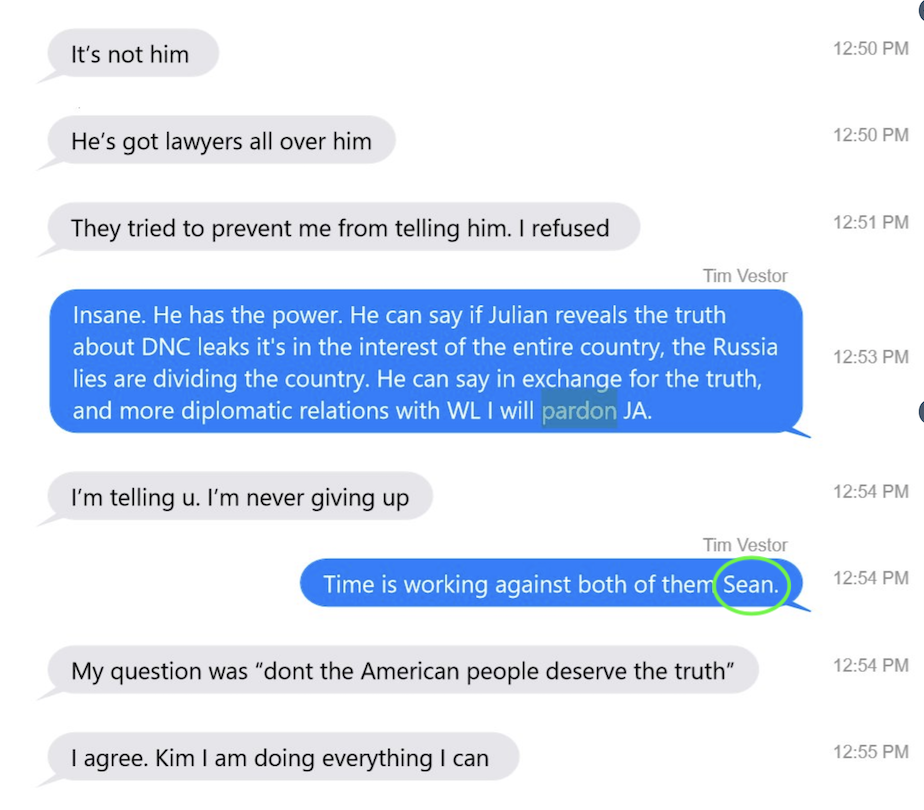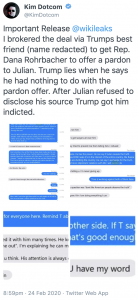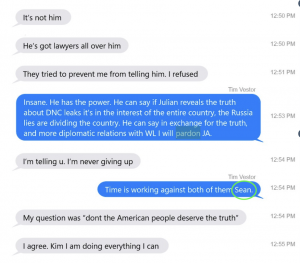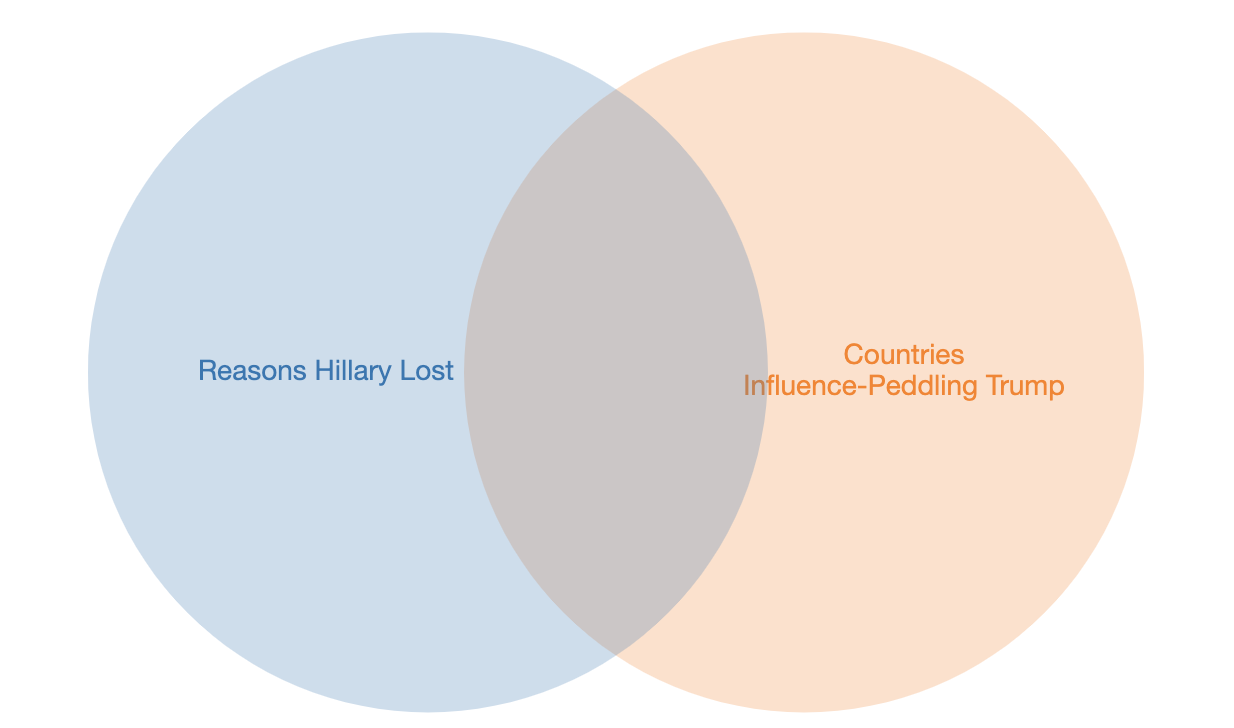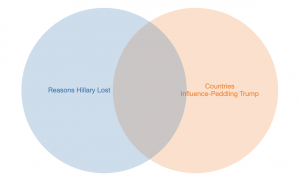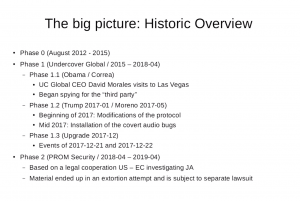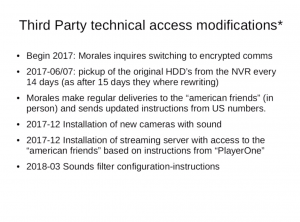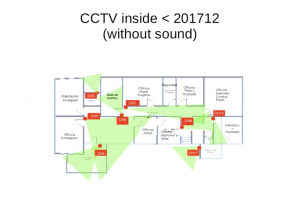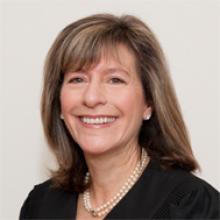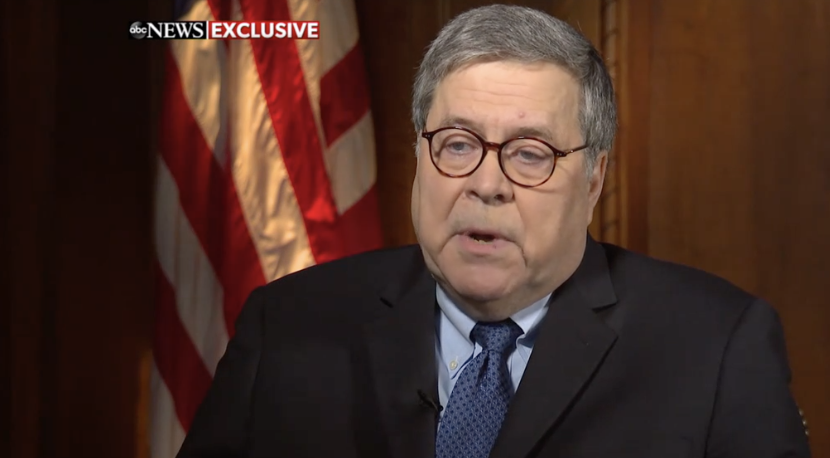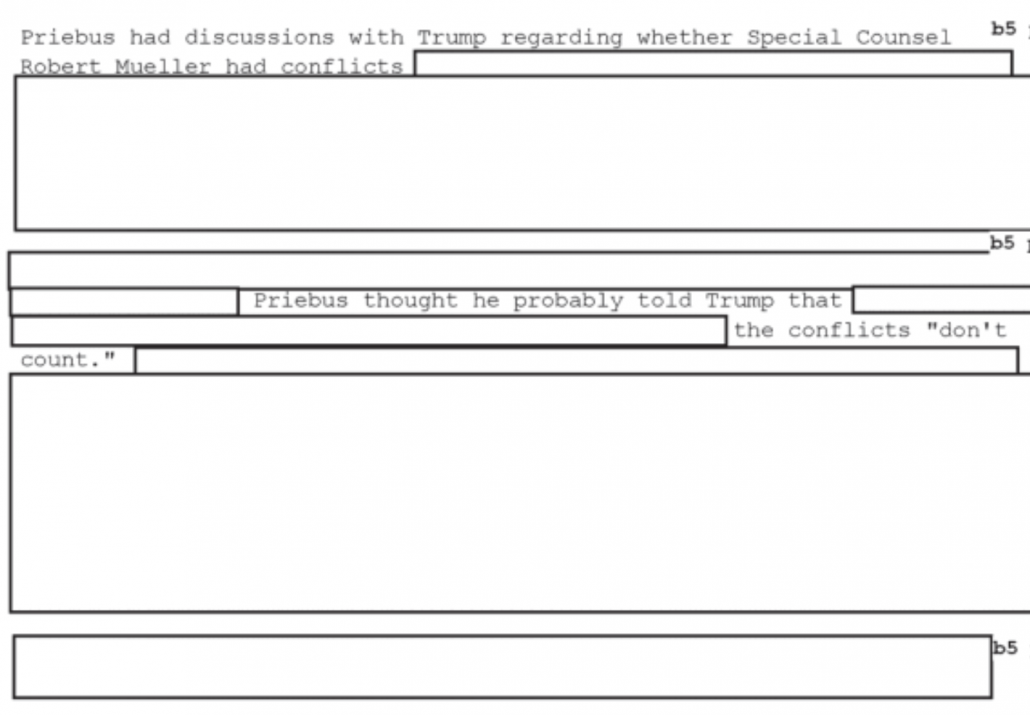In the aftermath of the news of Roger Stone’s sentence yesterday, some of DOJ’s beat journalists are doing irresponsible pieces giving Bill Barr’s close associates anonymity to lie, with no pushback, about what happened.
Another Justice Department official called Stone’s sentence a “vindication” of the attorney general’s decision last week to insert himself into the process, calling for a revised sentencing memorandum that undercut the line prosecutors’ prior recommendation of seven to nine years in prison. Four prosecutors quit the Stone case over the disagreement, and current and former Justice Department officials grew alarmed Trump was short-circuiting the law enforcement agency’s traditional independence. More than 2,600 former employees have signed onto a letter calling on Barr to resign over his handling of the matter.
Judge Amy Berman Jackson in no way vindicated Bill Barr’s intervention, and any experienced DOJ reporter passing on the claim unchallenged is doing their readers a gross disservice.
Worse still, confusion about what happened yesterday has permitted the frothy right to attack ABJ for what was a lenient sentence.
So I’d like to show how ABJ came up with her sentence. It shows that ABJ sentenced Stone to 57% of the sentence she judged the guidelines call for.
Probation Recommendation: 70-87 months
Between the original sentencing memo and Stone’s own memo, we can obtain what probation initially recommended. It started with a base offense level for Stone’s Obstruction, False Statements, and Witness Tampering of 14 (which would result in a 15 to 21 month guidelines sentence). Then it added four enhancements (Stone even cites the paragraphs of the presentencing report where Probation recommended these enhancements). First, it called for an 8-level enhancement under U.S.S.G. §2J1.2(b)(1)(B), which reads (PDF 243):
If the offense involved causing or threatening to cause physical injury to a person, or property damage, in order to obstruct the administration of justice, increase by 8 levels.
Next, it called for a 3-level enhancement for substantial interference with the administration of justice under U.S.S.G. §2J1.2(b)(1)(2) (meaning, the obstruction worked):
If the offense resulted in substantial interference with the administration of justice, increase by 3 levels.
Probation called for a 2-level enhancement under U.S.S.G. §2J1.2(b)(3)(C) for the extensive nature of Stone’s obstruction:
If the offense … (C) was otherwise extensive in scope, planning, or preparation, increase by 2 levels.
Given a footnote in Stone’s memo (and something ABJ said in the hearing yesterday), it appears that the government objected to the original January 16 recommendation from the Probation office and convinced them to apply this enhancement.
Obstruction of Justice 2 U.S.S.G. §2J1.2(b)(3)(C) 2 level increase ¶77
2 Government’s Objection to Presentence Investigation Report, dated January 30, 2020.
Finally, it called for a 2-level enhancement U.S.S.G. §3C1.1 2 for obstruction of this proceeding (meaning, his prosecution for the original obstruction charge; this is at PDF 367).
If (1) the defendant willfully obstructed or impeded, or attempted to obstruct or impede, the administration of justice with respect to the investigation, prosecution, or sentencing of the instant offense of conviction, and (2) the obstructive conduct related to (A) the defendant’s offense of conviction and any relevant conduct; or (B) a closely related offense, increase the offense level by 2 levels.
The sentencing table can be found at PDF 415. It provides a range of 87 to 108 months for a first time offender, as Stone is.
According to the transcript, however, the final recommendation did not apply the 2-level enhancement for the extensive obstruction. That provides a range for 70-87 months.
Prosecution Recommendation: 87-108 months
In May 2017, Jeff Sessions issued an order stating that “prosecutors should charge and pursue the most serious, readily provable offense,” which are, “by definition … those that carry the most substantial guidelines sentence.” It also stated that, “In most cases, recommending a sentence within the advisory guideline range will be appropriate.”
ABJ noted this policy yesterday in the sentencing hearing.
And that’s what the prosecution team did — recommend the same 87 to 108 months the Probation Office came up with. They justified each of the enhancements in their sentencing memo.
They argued the witness tampering enhancement was justified — even in spite of Randy Credico’s letter asking for leniency — because Credico still expressed fear that Stone’s associates might respond to his threats by attacking him, and because the threat itself triggers the enhancement.
Pursuant to U.S.S.G. § 2J1.2(b)(1)(B), eight levels are added because the offense “involved causing or threatening to cause physical injury to a person, or property damage, in order to obstruct the administration of justice.” As detailed above, as part of Stone’s campaign to keep Credico silent, Stone told Credico in writing, “Prepare to die, cocksucker.” Stone also threatened (again in writing) to “take that dog away from you.” Stone may point to the letter submitted by Credico and argue that he did not have a serious plan to harm Credico or that Credico did not seriously believe that Stone would follow through on his threats. But Credico testified that Stone’s threats concerned him because he was worried that Stone’s words, if repeated in public, might make “other people get ideas.” Tr. 11/8/19, at 795.
In any event, it is the threat itself, not the likelihood of carrying out the threat, that triggers the enhancement. Endeavoring to tamper with a witness can involve a wide range of conduct. This enhancement recognizes that when the conduct involves threats of injury or property damage, rather than simple persuasion for example, the base offense level does not accurately capture the seriousness of the crime. To apply the enhancement, there is no “additional ‘seriousness’ requirement beyond the fact of a violent threat.” See United States v. Plumley, 207 F.3d 1086, 1089-1091 (8th Cir. 2000) (applying § 2J1.2(b)(1)(B) to a defendant who told coconspirators to “‘keep our mouth shut,’ because if anyone cooperated with the police he would ‘kick our ass’”); United States v. Bakhtairi, 714 F.3d 1057, 1061 (8th Cir. 2013) (holding there was no seriousness requirement and applying § 2J1.2(b)(1) to a defendant who wrote a menacing email, displayed a loaded rifle to a law partner, and doctored photographs of witnesses children to “add . . . crosshairs”); United States v. Smith, 387 F.3d 826, (9th Cir. 2004) (applying § 2J1.2(b)(1)(B) to a defendant who threatened to kill a witness and “kick [her] ass,” and noting that § 2J1.2(b)(1) does not contain a “seriousness requirement”).
Prosecutors argued the 3-level enhancement for substantial interference was justified because Stone’s obstruction led HPSCI not to call Jerome Corsi and not to subpoena Corsi and Credico for documents, both of which led to errors in the HPSCI report.
Pursuant to U.S.S.G. § 2J1.2(b)(2), three levels are added because the offense resulted in substantial interference with the administration of justice. Because of Stone’s conduct, the House Intelligence Committee never received important documents, never heard from Credico (who pled the Fifth), and never heard from Corsi (who was never identified to the Committee as the real “back-channel” that Stone had referenced in August 2016). The Committee’s report even wrongly stated that there was no evidence contradicting Stone’s claim that all his information about WikiLeaks was from publicly available sources.
Prosecutors argued that the multi-year effort Stone engaged in merited the 2-level enhancement because of his obstruction’s extensive scope.
Pursuant to U.S.S.G. § 2B1.2(b)(3)(C), two levels are added because the offense was otherwise extensive in scope, planning, or preparation. Stone engaged in a multi-year scheme involving (1) false statements in sworn testimony; (2) the concealment of important documentary evidence; (3) further lies in a written submission to Congress; and (4) a relentless and elaborate campaign to silence Credico that involved cajoling, flattering, crafting forged documents, badgering, and threatening Credico’s reputation, friend, life, and dog. Stone’s efforts were as extensive, if not more extensive, than those of other defendants who received this two-level enhancement at sentencing. See, e.g., United States v. Petruk, 836 F.3d 974 (8th Cir. 2016) (enlisting a friend to create a false alibi and scripting a false confession); United States v. Jensen, 248 Fed. Appx. 849 (10th Cir. 2007) (giving advance notice of testing and falsifying results of tests).
Finally, prosecutors argued for a 2-level enhancement for all the violations of ABJ’s orders during the trial, notably his implicit threat against her.
Finally, pursuant to U.S.S.G. § 3C1.1, two levels are added because the defendant “willfully obstructed or impeded, or attempted to obstruct or impede, the administration of justice with respect to the prosecution of the instant offense of conviction.” Shortly after the case was indicted, Stone posted an image of the presiding judge with a crosshair next to her head. In a hearing to address, among other things, Stone’s ongoing pretrial release, Stone gave sworn testimony about this matter that was not credible. Stone then repeatedly violated a more specific court order by posting messages on social media about matters related to the case.
This enhancement is warranted based on that conduct. See U.S.S.G. § 3C1.C Cmt. 4(F) (“providing materially false information to a magistrate or judge”); see, e.g., United States v. Lassequ, 806 F.3d 618, 625 (1st Cir. 2015) (“Providing false information to a judge in the course of a bail hearing can serve as a basis for the obstruction of justice enhancement.”); United States v. Jones, 911 F. Supp. 54 (S.D.N.Y. 1996) (applying §3C1.1 enhancement to a defendant who submitted false information at hearing on modifying defendant’s conditions of release).
Prosecutors then showed how, under the guidelines, this adds up to an 87 to 108 month sentence.
Accordingly, Stone’s total offense level is 29 (14 + 8 + 3 + 2 + 2), and his Criminal History Category is I. His Guidelines Range is therefore 87-108 months.
Barr Recommendation: 30-46 months
In addition to violating DOJ policy of not deviating downwards from the Probation recommendation, the memo submitted under John Crabb Jr’s name (which his statements yesterday strongly indicate he did not write) offered little justification for why it was deviating from the Probation Office recommendation and never ultimately made a recommendation. But the memo suggested two of the enhancements — the 8-level enhancement for making a threat, and the 2-level enhancement for threatening ABJ — should not apply.
The memo suggested the 8-level enhancement shouldn’t apply, first, because doing so would double Stone’s exposure.
Notably, however, the Sentencing Guidelines enhancements in this case—while perhaps technically applicable— more than double the defendant’s total offense level and, as a result, disproportionately escalate the defendant’s sentencing exposure to an offense level of 29, which typically applies in cases involving violent offenses, such as armed robbery, not obstruction cases. Cf. U.S.S.G. § 2B3.1(a)-(b). As explained below, removing these enhancements would have a significant effect on the defendant’s Guidelines range. For example, if the Court were not to apply the eight-level enhancement for threatening a witness with physical injury, it would result in the defendant receiving an advisory Guidelines range of 37 to 46 months, which as explained below is more in line with the typical sentences imposed in obstruction cases.
It pointed to Credico’s letter to justify ignoring it.
First, as noted above, the most serious sentencing enhancement in this case—the eightlevel enhancement under Section 2J1.2(b)(1)(B) for “threatening to cause physical injury”—has been disputed by the victim of that threat, Randy Credico, who asserts that he did not perceive a genuine threat from the defendant but rather stated that “I never in any way felt that Stone himself posed a direct physical threat to me or my dog.” (ECF No. 273). While Mr. Credico’s subjective beliefs are not dispositive as to this enhancement, the Court may consider them when assessing the impact of applying the enhancement – particularly given the significant impact that the enhancement has on the defendant’s total Guidelines range.
Then, Barr’s memo argued (and this is the truly outrageous argument) that Stone’s attempts to obstruct his own prosecution overlapped with his efforts to obstruct the HPSCI investigation.
Second, the two-level enhancement for obstruction of justice (§ 3C1.1) overlaps to a degree with the offense conduct in this case. Moreover, it is unclear to what extent the Second, the two-level enhancement for obstruction of justice (§ 3C1.1) overlaps to a degree with the offense conduct in this case. Moreover, it is unclear to what extent the
Effectively, this language treated threats against a judge as unworthy of enhancement.
Probably the only part of this memo that really affected ABJ’s sentence was a discussion of avoiding disparities in sentencing, where it mentions Scooter Libby’s 30 month sentence (and Manafort’s obstruction-related sentence, by ABJ, which was just one part of her 7.5 year sentence of him).
Third, the Court must “avoid unwarranted sentencing disparities.” See 18 U.S.C. § 3553(a)(6). In its prior filing, the Government directed the Court’s attention to a non-exhaustive list of witness tampering, false statement, and obstruction of justice cases that resulted in sentences of thirty months (Libby), thirteen months (Manafort), six months (Lavelle), twelve months (Hansen), and thirty-five months (Solofa). While these cases involved lesser offense conduct, the sentences imposed constituted a fraction of the penalty suggested by the advisory Guidelines in this case.
In comments to Lindsey Graham, Bill Barr said he thought the guidelines should say 3.5-4.5 years, slightly more than the guidelines if the witness tampering were removed, but if you eliminate both the witness tampering and obstruction of proceedings enhancement the range would be 30-47 months.
ABJ Guidelines Calculation: 70-87 months
In court yesterday, ABJ started by going through the recommended sentence. Ultimately, she did the following with the guidelines (h/t Andrew Prokop for his great live tweeting):
- Accepted the 8-level enhancement for witness tampering, but said she’d take Credico’s comments into account
- Accepted the 3-level enhancement for substantial interference, noting that HPSCI was totally diverted by focusing on Credico
- Rejected the 2-level enhancement for the extensive nature of Stone’s obstruction (thereby agreeing with the original Probation office recommendation)
- Accepted the 2-level enhancement for Stone’s obstruction in this prosecution
That works out to a base level of 14 + 8 for the witness tampering threat + 3 for substantial interference + 2 for his obstruction in this prosecution. As ABJ calculated in court yesterday, that amounts to a guidelines offense level of 27, or a guidelines range of 70 to 87 months.
Importantly, these decisions mean ABJ disagreed with both the recommendations made in the Barr memo that she throw out the witness tampering threat and Stone’s interference in this trial (which included the threat against her).
Contrary to what the WaPo lets DOJ claim under cover of anonymity, this in no way vindicates Barr. Rather, it rebukes him, stating that neither of his interventions are valid.
ABJ Sentence: 40 months
Nevertheless, ABJ came up with a sentence of 40 months, a sentence that’s solidly in the range of what Barr wanted (and therefore a sentence he’s on the record as saying is just for Stone’s crimes).
ABJ got there, in part, by taking Credico’s comments into consideration, while still treating Stone’s threat as real. She got there in part by arguing that the sentencing guidelines are “inflated” — something anathema to Bill Barr’s policies at DOJ, and a stance that would say all defendants should be sentenced more leniently, not just Trump’s rat-fucker.
In her sentence, she explicitly said she was ignoring Trump’s comments and comments from the left asking for harsh punishment.
Ultimately, ABJ calculated the guidelines — which she said were inflated (and would be for all defendants) — at 70-87 months. She then sentenced Stone to 57% of the lower end of those guidelines.
And that is what has the frothy right in a tizzy — that she extended Roger Stone the same leniency that she would extend to other defendants, in defiance of Bill Barr’s demands that every defendant not covering up for the President be sentenced harshly.
This is in no way a vindication of Bill Barr. It is also, in no way, abusive.
Update: This has been updated to reflect what the transcript says about the final probation recommendation.

